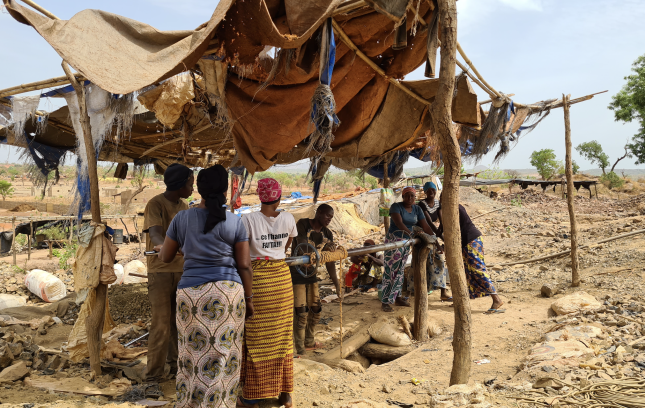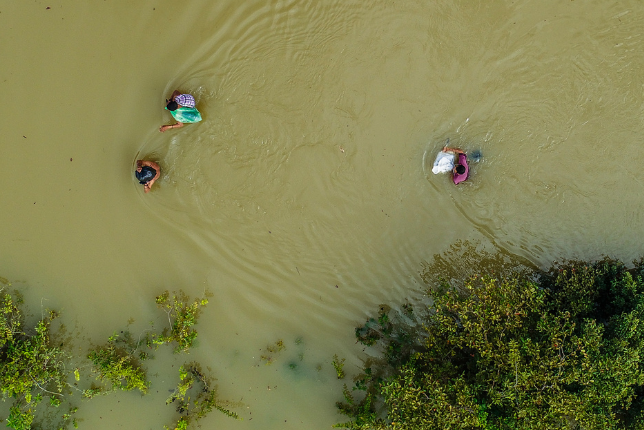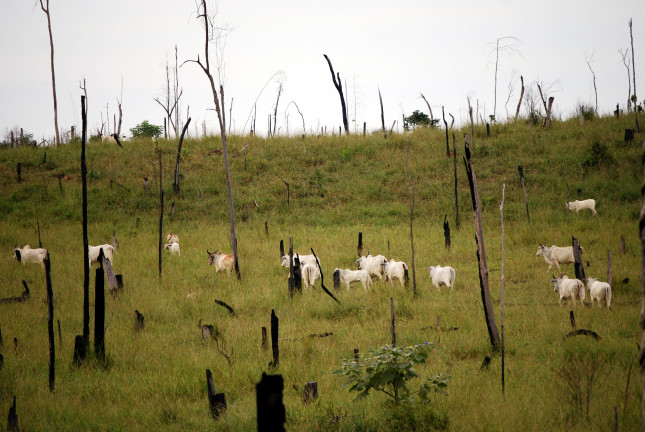-
Greening Eggs and Ham: Animal Feed and GHG Emissions in the United States and China
›“Save your kitchen scraps to feed the hens,” urged a poster for the victory gardens created on the home front in the Second World War. Feeding food scraps to backyard chickens and pigs turned this waste into a delicious source of human food. Pigs were especially prized in this effort as they would eat what most other animals considered inedible.
-
A U.S. Nonprofit Aims to Reduce Emissions of a Super Climate Pollutant from Chemical Plants in China
›A new initiative by the Climate Action Reserve, a nonprofit organization based in Los Angeles, could play a significant role in curbing emissions of a potent climate pollutant from chemical plants in China while filling a gap in international climate agreements and China’s environmental regulations.
-
Building Peace by Formalizing Gold Mining in the Central Sahel
›The Central Sahel is increasingly deemed the new epicenter of terrorism, accounting for 35 percent of global terrorism deaths in 2021. Yet as the situation in the region continues to deteriorate, artisanal and small-scale gold mining (ASGM) both persists and proliferates. For instance, in Mali, where much of the region’s security crisis originates, this conundrum is laid bare.
-
Addressing the Converging Risks of Climate, Insecurity, and Migration in Central America
›May 19, 2023 // By Claire Doyle
The idea of climate change as a “threat multiplier” has been gaining steam since it was first proposed roughly 15 years ago. This framing acknowledges that climate can interact with existing political, social, and demographic conditions to heighten communities’ security risks—which in turn suggests that problem-solving in the face of these risks must be interdisciplinary.
-
China’s Silent Greening
›China Environment Forum // Cool Agriculture // Guest Contributor // May 18, 2023 // By Rodrigo Bellezoni, Peng Ren & Zhao ZhongChina is Brazil’s main trading partner and accounts for over a quarter of all Brazilian exports. Yet two of the largest products in this trading relationship—beef and soybeans—are also crops that drive deforestation in the Amazon. Brazil’s deforestation rates declined substantially between 2004 and 2012, but forest clearage needed to raise cattle reversed the trend: The Amazon lost 10,476 square kilometers of rainforest in 2021, the highest total in the decade.
-
Critical Mineral Recycling: What Does It Offer?
›
The technology that is an essential part of clean energy and the future economy relies heavily on critical minerals. Electric vehicles (EVs), computers, wind turbines, and even defense technology require large mineral inputs, raising concerns over the stability of supply chains and the ability to meet growing demand. An IEA report published in 2021 predicts that demand for critical minerals will escalate over the next two decades, with increases of “40 percent for copper and rare earth elements, 60 to 70 percent for nickel and cobalt, and almost 90 percent for lithium.”
-
Carbon and Hydrogen in Meeting Climate Goals: Framing Matters
›
As international cooperation to mitigate climate change gathers pace, most European nations have adopted strategies to decarbonize their economies. It is a signal that these countries recognize the need to reduce the concentration of carbon dioxide in the atmosphere in order to limit global warming to 1.5 degrees Celsius above pre-industrial levels.
-
Russia’s War in Ukraine: Green Policies in a New Energy Geopolitics
›
Russia’s brutal aggression has wreaked devastation in Ukraine for more than a year. It has also forced a fundamental rethink of geopolitics. Central to that new thinking is the role of energy security and how to manage the insecurities created by the lopsided dependencies exposed by the conflict.
Showing posts from category meta.












